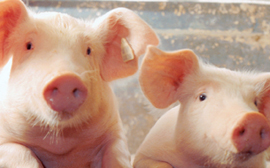Did you know that the single most effective action each of us can take to protect the planet, animals, and our own health is simply to choose foods free from animal products such as meat, dairy, and eggs?
It’s true! Read on to learn more about how adopting a plant-based (vegan) diet is the best choice for environmental sustainability, kindness to animals, and better human health.
A plant-based (vegan) diet consists of foods derived from plants, including vegetables and fruits, grains, legumes, nuts, and seeds.







